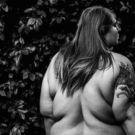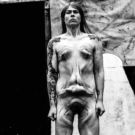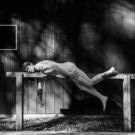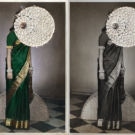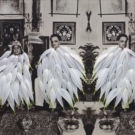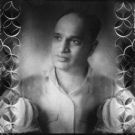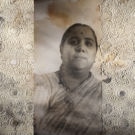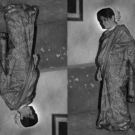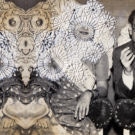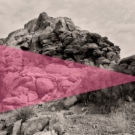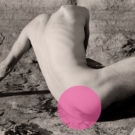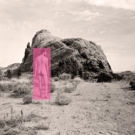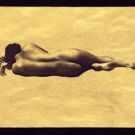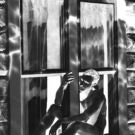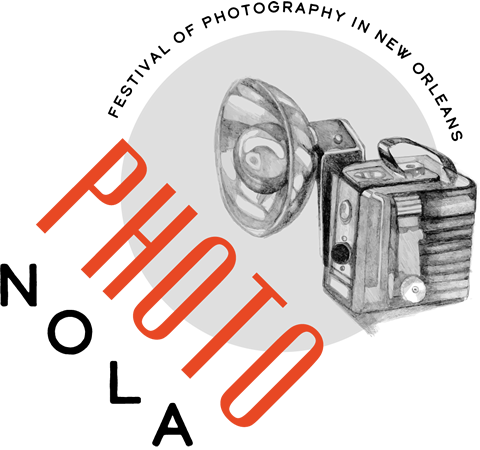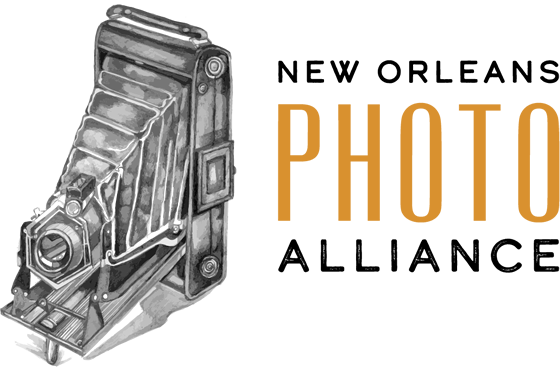After the PhotoNOLA portfolio reviews conclude, each reviewer is asked to select three outstanding projects. The influential editors, curators and gallerists each name their selections, then we tally the votes. Samantha Geballe was awarded the 2016 PhotoNOLA Review Prize, which includes a solo exhibition at the New Orleans Photo Alliance Gallery during the twelfth annual PhotoNOLA, a cash award of $1000, a marketing consultation with Mary Virginia Swanson, and a feature on Lenscratch. 2nd and 3rd Place winners, Priya Kambli and Christa Blackwood, will be recognized on the PhotoNOLA website.
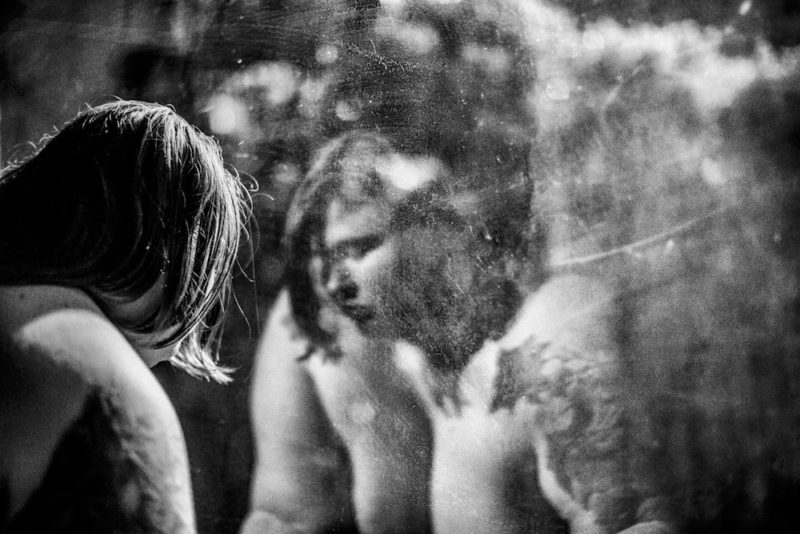
“The work of Samantha Geballe took me by surprise. It’s as honest, raw, & courageous as it gets; her beautiful self portraits compel you to meet her gaze and witness her unexpected transformation in body and in spirit.” – Christina Lane
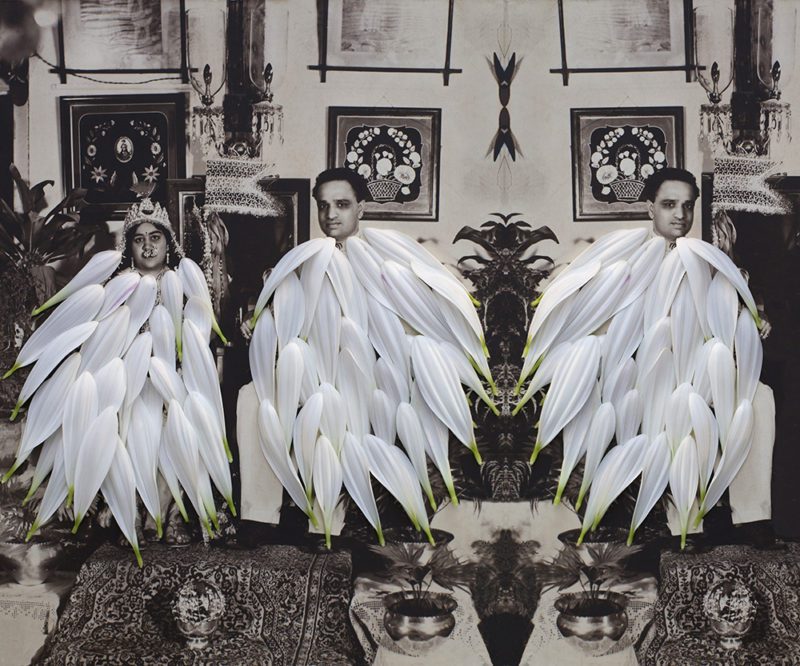
“I was moved unexpectedly by Priya Kambli’s autobiographically-driven image constructions. Her sculptural approach to the picture plane forges a symbolic conversation with people of the past. In the series Kitchen Gods, she photographs punctured family photos that are obsessively decorated with rice, flour, and petals. The patterns she uncovers are ornate, and a hypothetical meal is shared, as the complexity of one’s identity is revealed. Kambli tells a modern yet universal story.”
– Laura Blereau, Hilliard University Art Museum
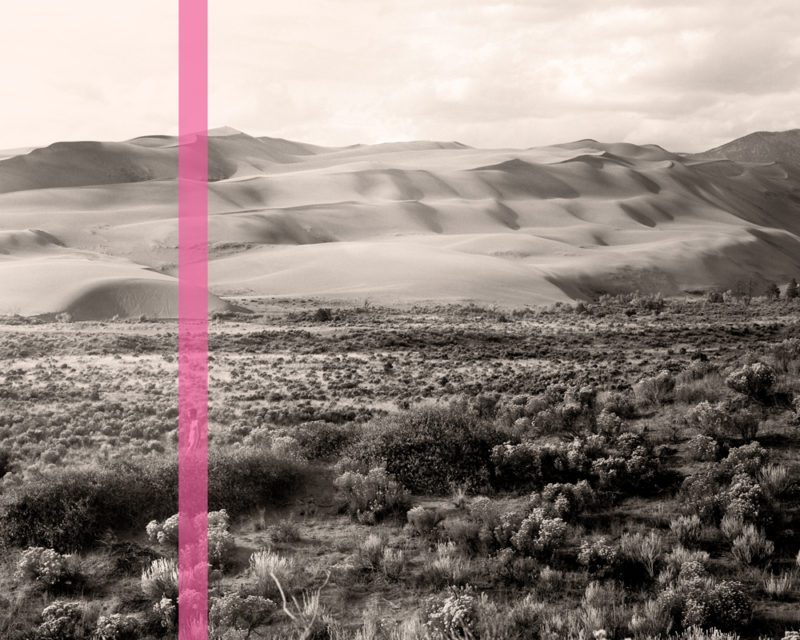
“Christa Blackwood turns iconic landscape/nude photography on its head with a fresh and unique perspective on photo history.” – Aline Smithson, Lenscratch
Samantha Geballe
Self-Untitled
This is not another fat kid’s story. There are times when I do assume that role but it does not define me. I don’t have the body I have for no reason but it would be all too easy to extend blame. What people don’t often see are the functions of obesity. I hide behind my size, mask vulnerabilities, and create walls as a way to protect myself. Something I have learned and portray in my art is that being vulnerable and forming connection have created new function and even healing. I share my body and my story not as a way to seek pity or define myself as a number, but as a venue for a viewer to say “I’ve been there too.”
I take self-portraits as a way to reverse perspective from how I see myself to my interpretation of how I am seen by others. This body of work represents the feeling that interpretation provokes. This work does not exclusively relate to obesity or size. It is also about misuse of a human and not being seen as such. This is a body of work that requires fearlessness. I have had to set my fears aside in order to convey my intended message. I think judgment derives from lack of information, meaning – when we don’t know the whole story, we fill in the missing pieces with our own knowledge. I think the reason we fight as a community is that we dissociate from humanity, not allowing ourselves to really know a person is a person.
Regardless of appearance, everyone has been made to feel small at some point. My hope is to generate a relationship between myself and others through my work and I ask you, as a viewer, to look for the similarities instead of the differences.
BIO
Samantha Geballe, a California native, was born and raised just outside of San Francisco in a small town called Woodside. Art is an interest of her family’s but that is not what propelled Samantha to create. Her ability to express herself through creative form is in her nature and she has been producing art in many different mediums since early childhood.
Currently, Samantha’s work focuses on conceptual portraiture, allowing her to explore human emotion from the inside out. She is working on an on-going self-portrait series focused on body image and healing that challenges viewers to question what it means to accept oneself.
Samantha is based in Los Angeles, CA.
Priya Kambli
My artwork is intrinsically tied to my own family’s photographic legacy. At age 18, I moved from India to the United States, a couple of years after my parents passed away. Before I emigrated my sister and I split our photographic inheritance arbitrarily and irreparably in half – one part to remain in India with her and the other to be displaced along with me, here in America. For the past decade my archive of family photographs has been one of my main source materials in creating bodies of work, which explore the genre of personal narrative.
Kitchen Gods
My current series titled, Kitchen Gods, references one of my most startling early childhood memories; finding one of my father’s painstakingly composed family photographs pierced by my mother. She cut holes in them so as to completely obliterate her own face while not harming the image of my sister and myself beside her. Even as a child I was aware that this act was quite significant – but what it signified was beyond my ability to decipher. As an adult I continue to be disturbed by these artifacts, which not only encompass the photographer’s hand but also the subject’s fingerprints. Even though her incisions have a violent quality to them, as an image-maker I am aesthetically drawn by the physical mark, its presence and its careful placement. These marred artifacts have formed a reference point and inspiration for my new body of work, Kitchen Gods, but they do not limit the form my own work takes. I am fascinated by how the presence of a mark alters and complicates the read of an otherwise mundane family portrait.
BIO
Priya Kambli was born in India. She moved to the United States at age 18 carrying her entire life in one suitcase. She began her artistic career in the States and her work has always been informed by this experience as a migrant.
She completed her BFA degree in Graphic Design from the University of Louisiana in Lafayette and continued on to receive a MFA degree in Photography from the University of Houston. She is currently Professor of Art at Truman State University in Kirksville, Missouri. In 2008 PhotoLucida awarded her a book publication prize for her project Color Falls Down which was published in 2010.
Christa Blackwood
Prix West
For the last four years, Christa Blackwood, has taken her large format film cameras and models and has hit the road. Traveling around Texas, and across New Mexico, Colorado and Utah, her work stages the nude male body within the majesty of North America’s gorgeous western landscape, and situates it in a genealogy of classical photographic studies of the human figure.
BIO
Christa Blackwood is a photo, film, and text based artist working with themes related to identity, history, and popular culture. Her visual voice was developed while a student at New York University, when she began producing street installation art such as Butcherknives (1991), a work that addressed issues of sexual violence. A chilling juxtaposition of billboard-like close-ups and text from poet Michelle Kotler, Butcherknives, was plastered all over the streets of lower Manhattan on the evening that the William Kennedy Smith verdict was announced. The poster’s timely and provocative appearance resulted in heightened critical attention for Blackwood, including an invitation to join the Women’s Action Coalition (WAC) from renowned artists and scholars, Kiki Smith and Lucy Lippard.
Employing multiple techniques and methods, Blackwood fuses traditional, historical and alternative processes with contemporary practices such as iPhone image-making and poster installations. She received her MA in Studio Art from New York University and BA in Classics from The University of Oklahoma. Her work has been featured in several publications including The New York Times, ArtDesk Magazine, New York Newsday, The Village Voice and The Chicago Sun Times. She has exhibited in galleries and museums throughout the U.S. and abroad. Her recent exhibitions, Prix West and Silver and Ink, were ranked among the top 5 Best Solo Gallery Exhibitions for 2013-2014 and 2015-2016 by the Austin Critics Table Awards.



